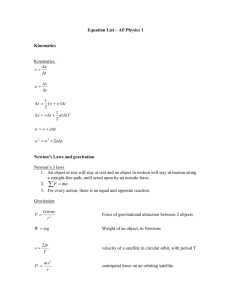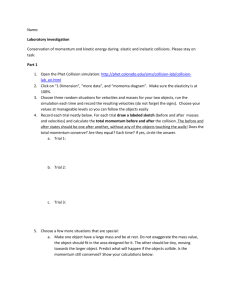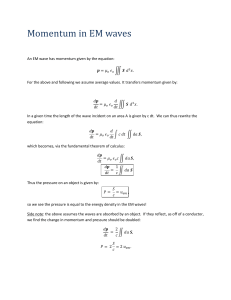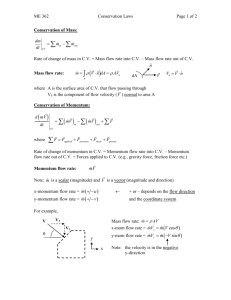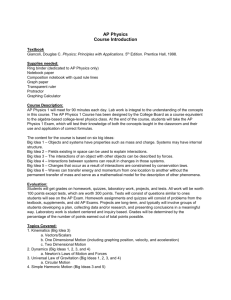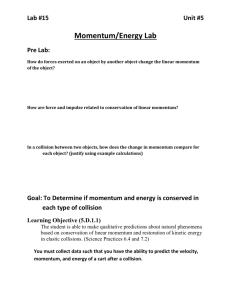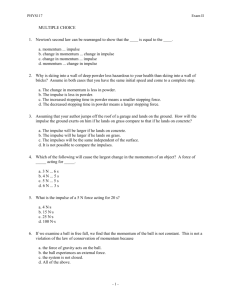Homework 3 solutions
advertisement
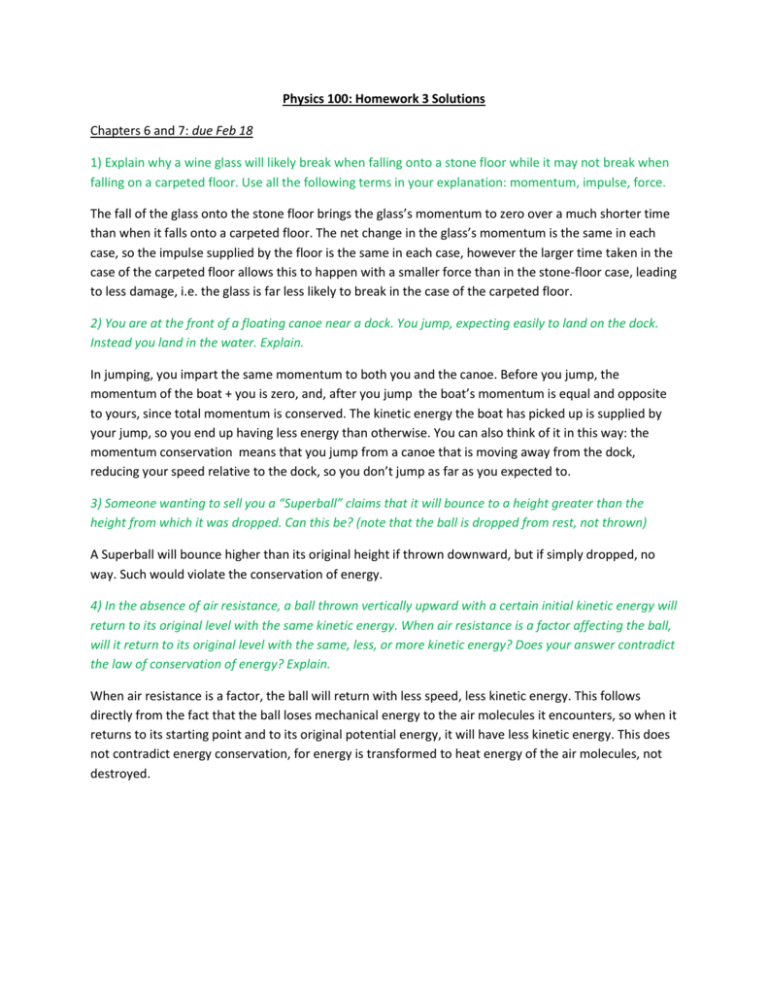
Physics 100: Homework 3 Solutions Chapters 6 and 7: due Feb 18 1) Explain why a wine glass will likely break when falling onto a stone floor while it may not break when falling on a carpeted floor. Use all the following terms in your explanation: momentum, impulse, force. The fall of the glass onto the stone floor brings the glass’s momentum to zero over a much shorter time than when it falls onto a carpeted floor. The net change in the glass’s momentum is the same in each case, so the impulse supplied by the floor is the same in each case, however the larger time taken in the case of the carpeted floor allows this to happen with a smaller force than in the stone-floor case, leading to less damage, i.e. the glass is far less likely to break in the case of the carpeted floor. 2) You are at the front of a floating canoe near a dock. You jump, expecting easily to land on the dock. Instead you land in the water. Explain. In jumping, you impart the same momentum to both you and the canoe. Before you jump, the momentum of the boat + you is zero, and, after you jump the boat’s momentum is equal and opposite to yours, since total momentum is conserved. The kinetic energy the boat has picked up is supplied by your jump, so you end up having less energy than otherwise. You can also think of it in this way: the momentum conservation means that you jump from a canoe that is moving away from the dock, reducing your speed relative to the dock, so you don’t jump as far as you expected to. 3) Someone wanting to sell you a “Superball” claims that it will bounce to a height greater than the height from which it was dropped. Can this be? (note that the ball is dropped from rest, not thrown) A Superball will bounce higher than its original height if thrown downward, but if simply dropped, no way. Such would violate the conservation of energy. 4) In the absence of air resistance, a ball thrown vertically upward with a certain initial kinetic energy will return to its original level with the same kinetic energy. When air resistance is a factor affecting the ball, will it return to its original level with the same, less, or more kinetic energy? Does your answer contradict the law of conservation of energy? Explain. When air resistance is a factor, the ball will return with less speed, less kinetic energy. This follows directly from the fact that the ball loses mechanical energy to the air molecules it encounters, so when it returns to its starting point and to its original potential energy, it will have less kinetic energy. This does not contradict energy conservation, for energy is transformed to heat energy of the air molecules, not destroyed.
